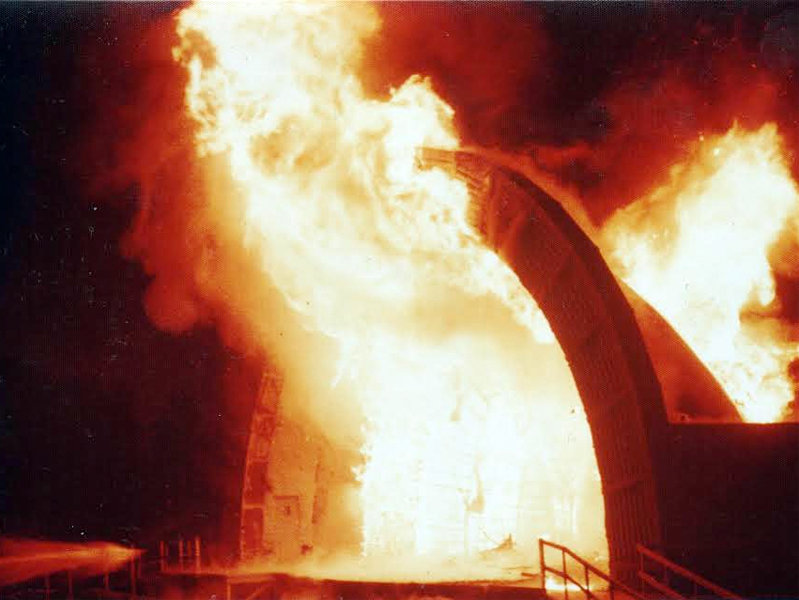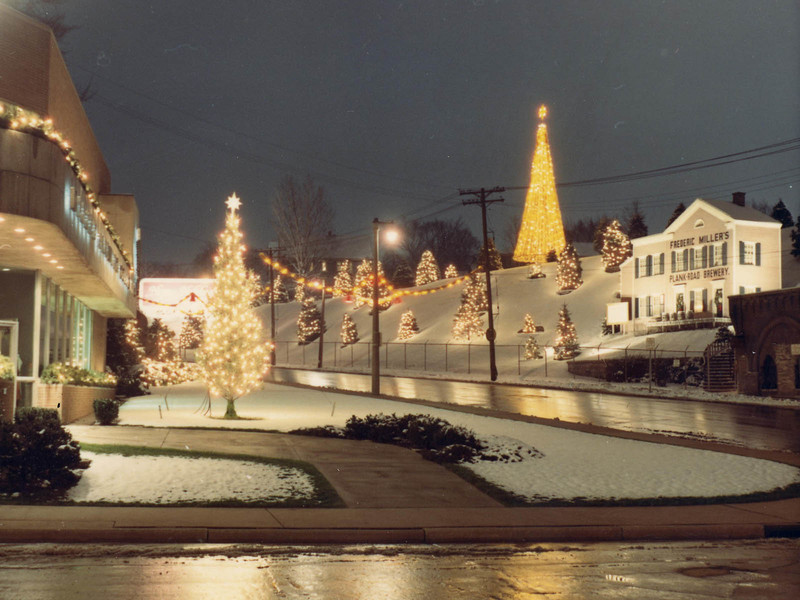One hundred eight years ago, a 69-year-old man walked from Portland, Maine, to Chicago to "show all Englishmen, Frenchmen, Germans, Australians and other nations that America can beat them at anything on the cards."
Upon completing his 28-day, 1,235-mile trek on Nov. 27, 1907, Edward Payson Weston got a welcome in the Windy City akin to the kind astronauts back from outer space would be accorded 50-some years later, and the sport of "pedestrianism" was off and running.
A week later, Weston arrived in Milwaukee for a walking contest with political implications that overshadowed its competitive ones.
It started at a banquet feting Weston at the Illinois Athletic Club in Chicago, where member Jake Sternad of the Western Vaudeville Association bragged that "a 100-mile stroll would be as easy as rolling a baby buggy downhill to me."
"With that bay window?" teased Peter Schaefer, manager of the Orpheum Theater. "Bet you couldn’t walk it in 48 hours."
"Make it 60 hours, and I’ll put up $200 that I can," responded Sternad.
By the time dessert was served, four more IAC members were in, each betting $200 he could walk from Milwaukee to Chicago in 60 hours. The $1,000 pot would be divided among the contestants who covered the 90-mile distance in the allotted time.
The guest of honor was dubious about the undertaking.
"Glad it’s not my money you’re betting," Weston told the quintet. "Some of you may last 20 miles, but the others will be climbing into the automobiles after they have passed the tenth mile post. You’re all too soft."
But the patriarch of pedestrianism agreed to go along as the official umpire of the contest that soon included Chicago Ald. Charles Badenoch, a 56-year-old fitness buff who decided at the last minute to compete for the glory of it (he didn’t ante up) and also to stick it to his doctor, who advised the veteran lawmaker to start slowing down.
Greeting Weston and the Chicagoans on Dec. 2 when they stepped off the train at the Northwestern depot was Milwaukee’s "Boy Mayor" Sherburn M. Becker, who promptly announced that he also would be on the starting line outside the Wells Building at 7:10 the next morning.
The 29-year-old Becker had no known prior experience or even interest in pedestrianism, and in fact, his preferred mode of transportation was the eye-popping red Pope-Toledo automobile (said to be one of the first cars in Milwaukee) in which the new mayor drove to New York to meet President Teddy Roosevelt after the 1906 election in which Becker upset incumbent David Rose.
The reason for the Boy Mayor’s participation became clear three-and-a-half hours into the well-publicized walk, when he introduced himself to farmer Joseph Haas near South Milwaukee. "I hope you will remember me," Becker told him, "… I’ll be back next fall to see you, and I want you to say a good word for me because I am going to run for governor."
Becker’s brainstorm was to campaign for the statehouse in 1908 by walking around Wisconsin with the famous Weston alongside him, but he may have been rethinking that by the time he straggled into Racine around 2:15 in the afternoon in a raging snowstorm and went right to bed. Ald. Badenoch had breezed into town an hour ahead of him and everyone else, in especially remarkable shape considering that, having joined the expedition on impulse, he wore a business suit and new shoes, with not even an overcoat to protect him from the elements.
By the time Badenoch reached Kenosha at 9 o’clock that night, feeling "chipper as a schoolboy," all but Sternad of the five original IAC contestants had quit, and Mayor Becker and Weston, walking together, were lost in a blizzard. Several cars were dispatched to find them, and when they did, Becker was limping from what he said was a sprained ankle. They insisted on completing the hike to Kenosha, where Weston derided the IAC dropouts as "flunkers" and ate a big steak dinner. Becker had a two-hour massage and hit the sack.
At 7:30 the next morning, several hundred people cheered the remaining pedestrians as they departed the Hotel Eichelman. Mayor Becker, wearing a large bandage on his foot, vowed he would make it to Chicago if he had to be returned to Milwaukee "in a baggage car."
Six miles out of town, he threw in the towel. He and Weston were driven to Waukegan, and while Becker insisted he would’ve easily reached Chicago had he not been hurt, The Milwaukee Journal wondered if the mayor stopped when he did "because he recollected that he was not conducting any sort of campaign outside of Wisconsin."
Sternad, the last of the IAC Five, gave up the struggle on the icy and snow-clogged roads of northern Illinois, but the indefatigable Ald. Badenoch, "his beard frozen stiff and garments coated with snow" (Chicago Tribune), marched into Evanston at 11:10 that night. At 12:10 p.m. on Dec. 4, he won the Battle of the City Halls, escorted to the Illinois Athletic Club by a phalanx of mounted policemen and city officials. He completed the walk in 51 hours and 50 minutes.
The first thing Badenoch did was gingerly inquire after his wife’s temperament, as in his haste to join the walking contest, he had neglected to mention it to her. Then he dared anyone thinking of running against him in the 11th aldermanic district four months hence to try to use his age against him.
Pedestrianism continued to have a vogue for several years, but not as a political strategy. In 1908, Ald. Badenoch lost his bid for re-election in Chicago, and Sherburn Becker opted not to run – or walk – for governor or even a second term as Milwaukee mayor.
Edward Payson Weston went on to twice cross the USA afoot. After the first time in 1910, a Milwaukee Sentinel editorial said, "Sportsmen of all kinds would do well to emulate the example of this really wonderful old man."
But three years later, when Weston, then 75, set off on a 1,500-mile hike from New York City to Minneapolis, an editorial in the same paper cried enough already.
"We fail to see why this particular stunt will add anything to science, beyond demonstrating that certain kinds of food and shoe leather may have alert publicity agents," huffed the editorial.
"Mr. Weston," it continued, "is pretty near putting himself in the class of individuals who are forever doing something spectacular but not worthwhile … foolish and resultless."







